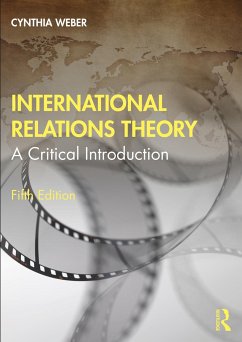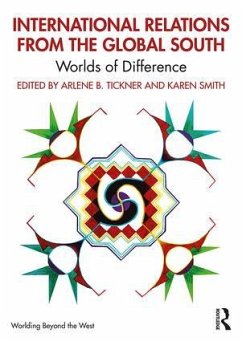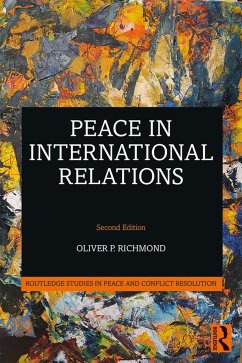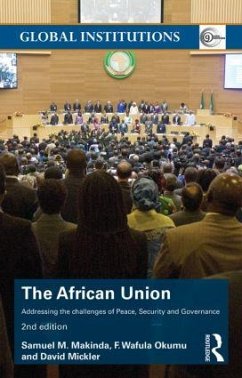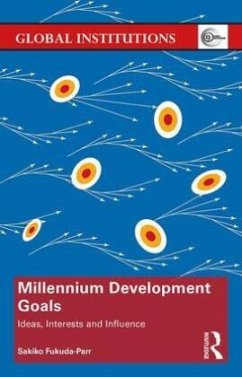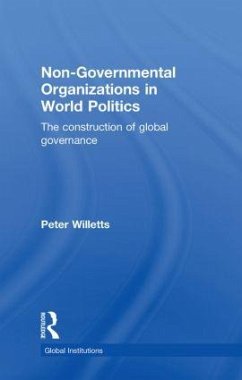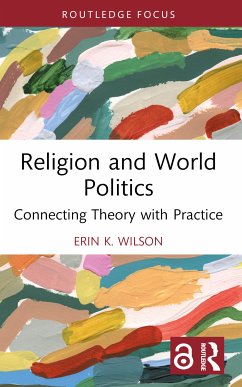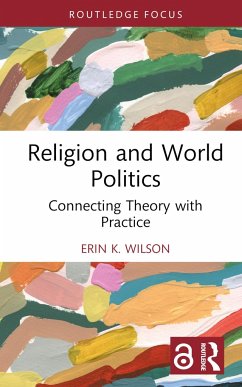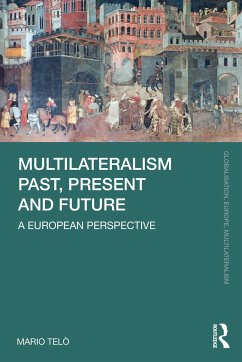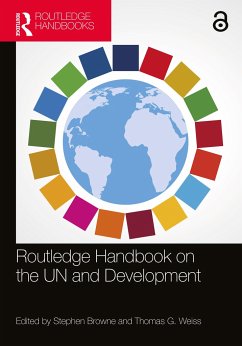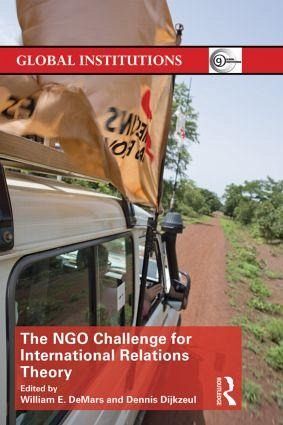
Broschiertes Buch
The NGO Challenge for International Relations Theory
Versandkostenfrei!
Versandfertig in 1-2 Wochen

PAYBACK Punkte
30 °P sammeln!





This book seeks to achieve a dual purpose: to enhance understanding of NGOs by generating better evidence and theory; and to inform and renew IR theory through the challenge of understanding NGOs.
Dr. William E. DeMars is Professor & Chair, Department of Government, Wofford College, USA. Dennis Dijkzeul is the Executive Director of the Institute of International Law of Peace and Armed Conflict and Professor of Conflict and Organization Research at Ruhr University Bochum, Germany.
Produktdetails
- Global Institutions
- Verlag: Taylor & Francis
- Artikelnr. des Verlages: Y175624
- 1st ed.
- Seitenzahl: 360
- Erscheinungstermin: 19. Februar 2015
- Englisch
- Abmessung: 216mm x 140mm x 19mm
- Gewicht: 455g
- ISBN-13: 9781138845305
- ISBN-10: 1138845302
- Artikelnr.: 41562036
Herstellerkennzeichnung
Libri GmbH
Europaallee 1
36244 Bad Hersfeld
gpsr@libri.de
NGOs have been challenging international relations theory for some time, and this essential volume clearly articulates the many ways it has. More importantly, it also charts a path for future theorizing.
Michael Barnett, University Professor of International Affairs and Political Science, George Washington University
This new volume on NGOs provides a root and branch critique of how all the major IR theories overlook the politics of NGOs. Redeploying core themes of power and practice, it provides an in-depth understanding of the global order, locating the 'bridging' role that NGOs play for many issues and across many societies. The chapters offer new insights into the strategies and impacts of NGOs in
Michael Barnett, University Professor of International Affairs and Political Science, George Washington University
This new volume on NGOs provides a root and branch critique of how all the major IR theories overlook the politics of NGOs. Redeploying core themes of power and practice, it provides an in-depth understanding of the global order, locating the 'bridging' role that NGOs play for many issues and across many societies. The chapters offer new insights into the strategies and impacts of NGOs in
Mehr anzeigen
international affairs, and the conclusion synthesizes the various ways in which NGOs force radical reorientations of IR theory. This book should be read by any student or scholar of international relations.
Anthony F. Lang, Jr., Chair in International Political Theory and Director of the Centre for Global Constitutionalism, University of St Andrews
"The NGO Challenge for International Relations Theory is an important and thought-provoking book that consolidates multiple perspectives and offers sound and novel advice for NGO researchers. It will primarily interest doctoral students and faculty specializing in NGO studies, as well as IR theorists concerned with ontology, epistemology, and methodology."
George E. Mitchell, The Powell School of the City College of New York
Anthony F. Lang, Jr., Chair in International Political Theory and Director of the Centre for Global Constitutionalism, University of St Andrews
"The NGO Challenge for International Relations Theory is an important and thought-provoking book that consolidates multiple perspectives and offers sound and novel advice for NGO researchers. It will primarily interest doctoral students and faculty specializing in NGO studies, as well as IR theorists concerned with ontology, epistemology, and methodology."
George E. Mitchell, The Powell School of the City College of New York
Schließen
Für dieses Produkt wurde noch keine Bewertung abgegeben. Wir würden uns sehr freuen, wenn du die erste Bewertung schreibst!
Eine Bewertung schreiben
Eine Bewertung schreiben
Andere Kunden interessierten sich für


